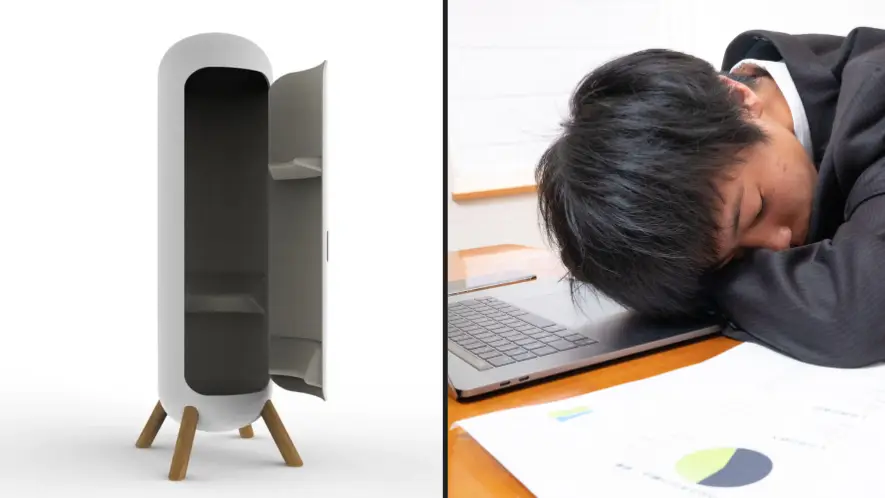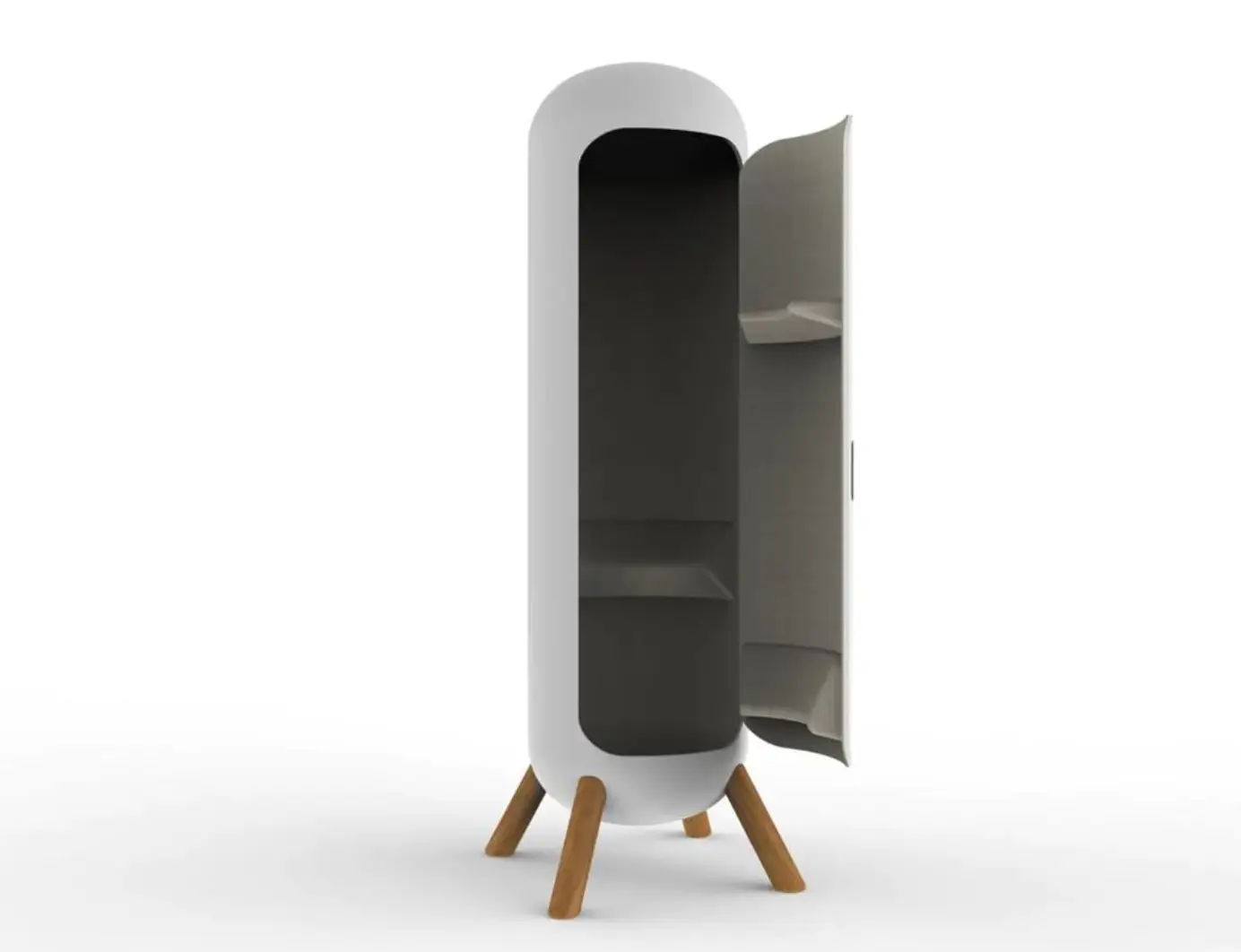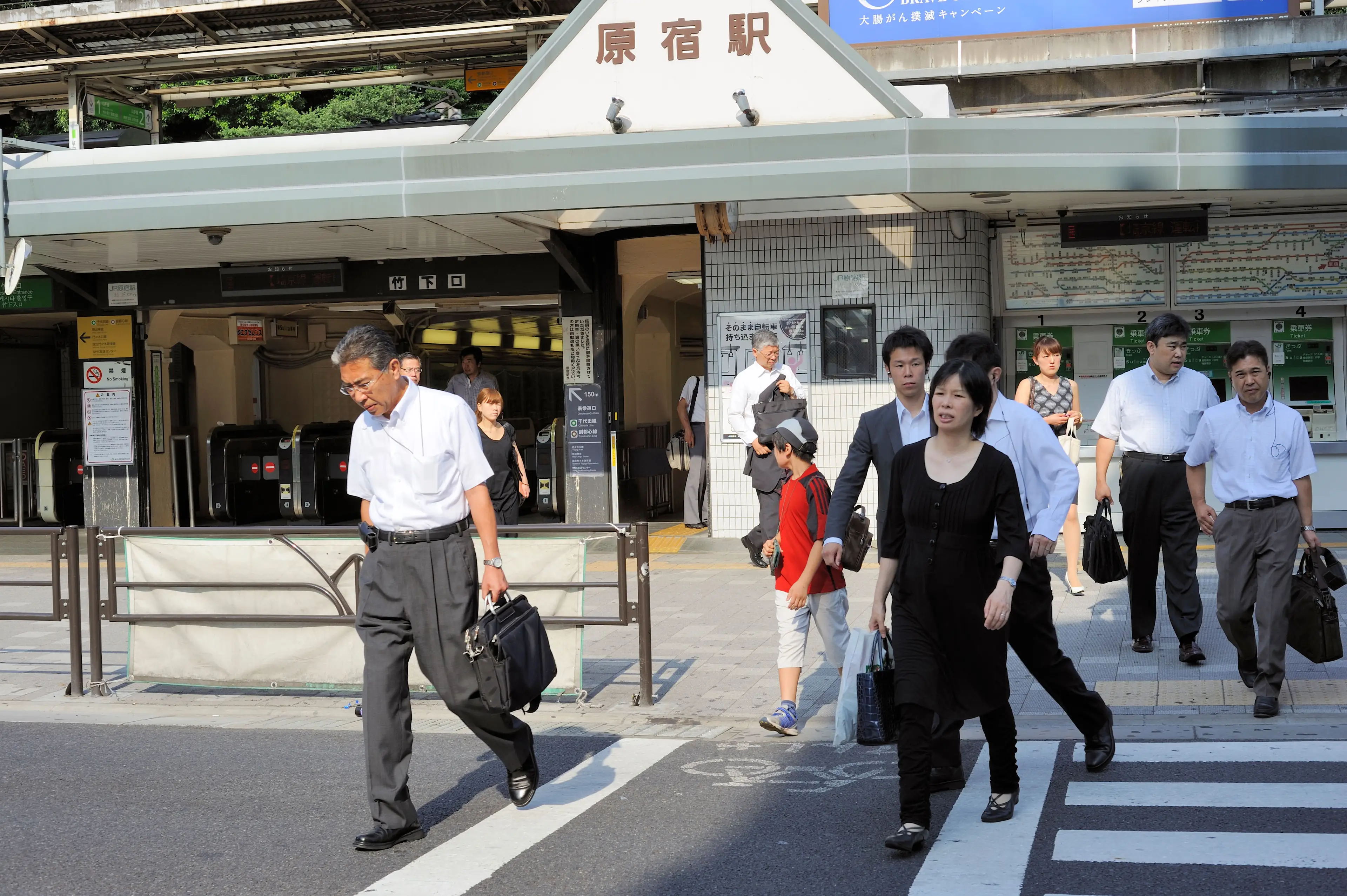
Japan has developed groundbreaking standing sleep pods so employees can slip away and have a quick standing nap.
Tokyo-based office furniture supplier Itoki collaborated with Hokkaido woodworking company, Koyoju Plywood Corporation, to create the ‘nap box’ - or the Kamin box, to enable workers to have a mid-day fiesta, according to Mirror.
We're not gonna lie; this ‘nap box’ definitely looks just like a vertical tanning bed.
Do they think people are like horses and sleep standing up?
Advert

However, we understand that office workers spend so many tedious hours at work, so this invention might just be what they need.
Itoki communications director Saeko Kawashima said the nap box offers a healthy solution for employees wanting to take a quick and tactical catnap while on shift.
He told Bloomberg News: "In Japan, there are a lot of people who will lock themselves up in the bathroom for a while which I don’t think is healthy.
"It’s better to sleep in a comfortable location."
The design has been made to ensure that the head, knees, and back are sufficiently supported, so that people will feel comfortable enough to lay back while not worrying about toppling over.
As the invention urges employees to prioritise restoration, Kawashima hopes it will boost productivity during the work day and encourage a healthy work culture.

Kawashima said: "I think a lot of Japanese people tend to work continuously with no breaks. We are hoping that companies can use this as a more flexible approach to resting.”
CNBC reports that the country has some of the longest working hours in the world.
According to a 2016 government survey, nearly one-quarter of Japanese companies expect their staff to work 80 hours of overtime in one month.
This survey was also supported by a 2020 report, which revealed that 86 per cent of businesses with 1,000 employees or more had staff report they worked between 45- 80 hours outside of work hours and off days in a month.
The gruelling work culture has even seen the Japanese coin the term ‘karoshi’, which means ‘death by overwork’.
In 2015, an employee working for mega advertising firm Dentsu jumped to her death, and it was said that working overtime led to her depression, according to the BBC.
As a result, the company's CEO resigned due to the backlash of her death, and ultimately Dentsu was fined for infringing labour standards as she had been forced to work 100 hours of overtime a month.
Topics: News, Good News, Sleep, Mental Health, Health